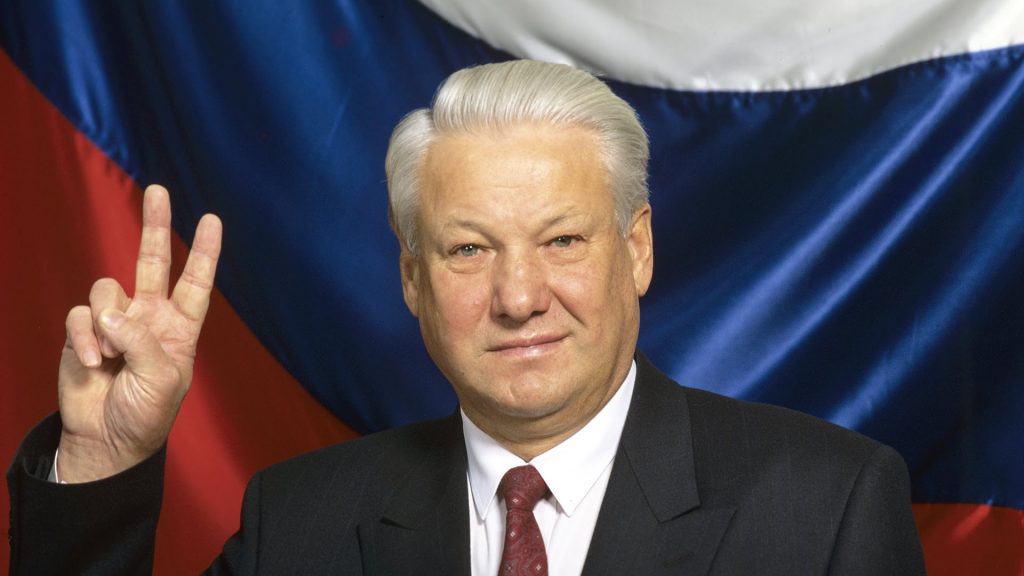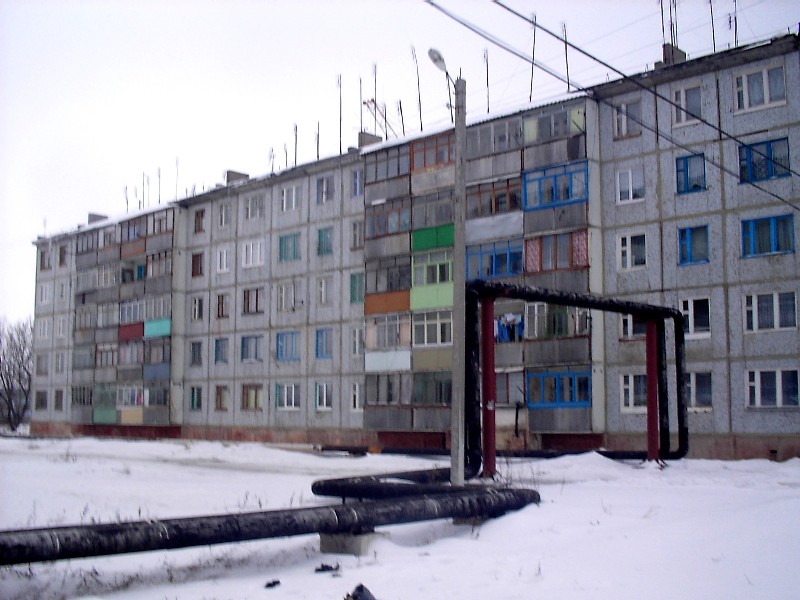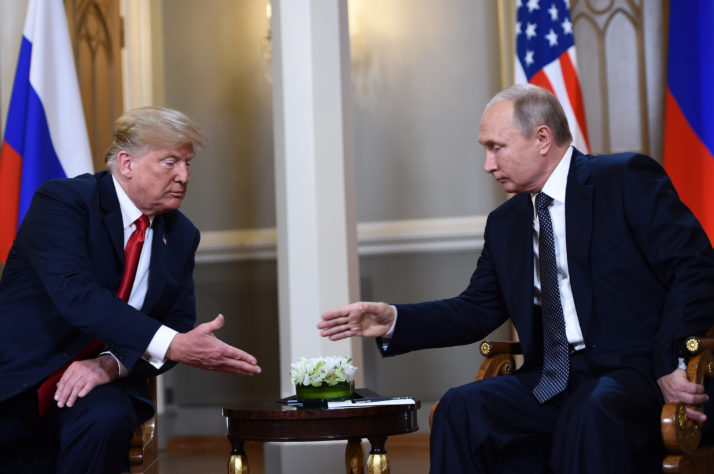
There is a great wailing arising and much wringing of hands going on in the United States over the assertion that Russia interfered inour last electionto ensure that Donald Trump and not Hilary Clinton was elected president. This is sheer hypocrisy. The fact of the matter is that American presidents, universities, economic and political advisers, government institutions and banks worked both covertly and openly to see that Boris Yeltsin would defeat Gennady Zyuganov, his Communist opponent. With his election America would see its most cherished ambition realized as he disemboweled Communism in the Soviet Union, oversaw the dissolution of the Union of Soviet Socialist Republics and led the country to economic ruin. The tale of how all of this came about is long and complex but extremely interesting.
America’s long battle against the Soviet Union was fought on many fronts and embraced many different strategies. Paramount was an unremitting arms race itself which demanded that the wealth of the Soviet Union be poured into the military at expense of the people. “When the Reagan administration managed to agree with Saudi Arabia to derail global oil prices, the situation became very bad. The production of money was growing, but it was not backed with the industrial production of essential commodities. In short, guns and tanks were produced in excess, but ordinary butter was hard to find.” The result was that the people were dissatisfied with their standard of living, and the dissatisfaction of the people plays a major role in any revolutionary transformation. http://www.pravdareport.com/business/finance/16-07-2013/125160-financial_reforms_soviet_union-0/
But the greatest weapon in America’s arsenal was the image of itself that America projected onto the world: a land of freedom, opportunity, and copious commodities. It was this image, and not the actual reality of life in America, of which they knew little, that the many Russians became enamored of. Secret prohibited shortwave broadcasts from the US State Department’s Radio Free Europe/Radio Liberty out of Munich fed those illusions of an American capitalist paradise. To a people filled with want and need the desire to have was powerful.
The Economists:
As difficult as it may be to believe, the massive transformation of the mode of production from Communism to Capitalism that ultimately gave rise to modern Russia, had its origins in the 1980s when a group of economists and intellectuals fell in love with the image of America. The man who was most smitten with that image, and who would do anything to project it onto his own nation, was Anatoly Chubais. Just as Lenin had led the revolution to establish the first communist state, Chubais would lead the revolution to reconstruct his nation in the image of America. More than any other single individual, even Yeltsin who supported Chubaisas he implemented his plans, AnatolyChubais would be responsible for the downfall of the Soviet Union and the suffering and starvation of the Russia people. He is today, by his own admission, the most hated man in Russia. (https://www.youtube.com/watch?v=E5ERt8VDiyY
Anatoly Chubais, born in 1955, ten years after what Russians call “The Great Patriotic War, WWII, was the son of a professor of “Scientific Communism and Philosophy”, Boris Chubais. His mother was also an economist, and his older brother, Boris, would go on to become a philosopher. It is curious that coming from this background, both Anatoly and his brother would go on to become liberal democrats and fierce advocates of Capitalism. Of course, the key question, at least for me, is who and what brought about their conversions.
Twenty-two years after his birth he would receive his diploma from the ‘Leningrad Institute of Engineering and Economics’ and join the Communist Party of the Soviet Union. Yet even as he joined the party he apparently was formulating a plan for destroying it. Just as Paul had spread Christianity first by preaching and then by establishing small groups of Christians who met to study, speak and worship together, Chubais, filled with an evangelical zeal, preached the redemptive values of American Capitalism for the Russian people and establish circles of followers who shared his beliefs. He preached his ideas from the podium of his classes when he started out as a teacher at the Leningrad Institute of Engineering and Economics. During his career as an assistant professor, he founded a small organization called ‘Reforma’ which designed platforms for both local and national elections. He also founded groups like ‘The Young Economists’, and a branch of the ‘Perestroika Club’. As his popularity and following grew, Chubais established and became the leader of a circle of liberal economists in Leningrad, economists who would become faithful comrades in arms in Chubais’ war against Communism.
In 1983 Chubais met Yegor Gaidar, who began to attend Chubais’ seminars and soon became a true believer in capitalism and liberal democracy. Gaidar would go on to become Prime Minister of Russia, and it would be he who would put the first nail in the coffin of Soviet Communism when he implemented his program of “shock therapy” under Yeltsin.
Among the members of this club were Alexi Kudrin, who would go on to serve as finance minister during President Putin’s first two terms. He quit in 2011 over differences with then President, Dmitry Medvedev, but returned to work under President Putin drafting the economic program for his new term. As I write today, he is head of Russia’s Audit Chamber, a body focused on monitoring the spending of government funds and checking for corruption. He advocates easing tensions with the West and boosting the role of the private sector to revive the economy.
These dissident economists soon turned directly to politics, helping to make Anatoly Sobchak the first democratically elected mayor of Leningrad in 1991. Sobchak had earned a law degree and afterwards practiced law in Stavropol the southern Russian city where Mikhail Gorbachev was rising in power and influence. Sobchak completed an advanced legal study in Leningrad and was appointed (1983) the first professor of economic law at Leningrad State University. Among his students were both Vladimir Putin and Dmitry Medvedev.
As Mayor of Leningrad Sobchak was known for his liberal views, his bold speaking style, and cutting critiques of old-style politics and politicians. Shortly after the communist regime collapsed at the end of 1991, Sobchak made the highly symbolic move of reinstating the city’s pre-World War I name, St. Petersburg.
Chubais was of course given a position in Sobchak’s government, and so too, was Sobchak’s former student, Vladimir Putin. Putin became an adviser to Sobchak. By 1994 he had risen to the post of first deputy mayor. He could not have achieved any of this had he not at least outwardly, been in sympathy with Chubais’ beliefs.
It would be Anatoly Chubais and Alexei Kudrinwho would bring Putin to the capital to help in their campaign to reestablish order and rein in the oligarchs who had essentially privatized Moscow and the state. In July 1998 Pres. Boris Yeltsin made Putin director of the Federal Security Service (FSB; the KGB’s domestic successor), and shortly thereafter he became secretary of the influential Security Council. Yeltsin, who was searching for an heir to assume his mantle, appointed Putin prime minister in 1999. With the election of Putin America’s take over of Russia was brought to a screeching halt.
There were three bold economic reforms that ostensibly aimed at pulling the Soviet Union out of its economic doldrums would instead plunged it into economic hell. The first had been initiated by an economist named Pavlov, who did not want to destroy but rather to support the Soviet Union through economic reform. Pavlov had begun his career in the Ministry of Finance under Khrushchev. Under Brezhnev, he had been appointed head of the Financial Department of the State Planning Committee. Early in 1991 he would initiate the monetary reform which came to bear his name. At his urging Mikhail Gorbachev made 50 and 100 rouble notes almost worthless. As a result, the rouble devalued sharply beginning in 1992 and fell until 1997 when it reached 5, 562 roubles to the dollar. The “Pavlovian Reforms” as they are called, had a significant influence on the course of the subsequent events in the country and were one of the main reasons for the growth of political separatism in 1991 among the Soviet Republics. He made the mistake of joining the 1991 Soviet coup d’état which tried to prevent the taking apart of the Soviet Union by ousting Gorbachev. The coup failed, and Pavlov was jailed, only to be released afterwards.
In 1991 Chubais became a member of the Yeltsin cabinet where he worked for the Committee for the Management of State Property which was tasked with bringing about privatization in Russia. He originally wanted privatization to occur quickly. However, when the Congress of People’s Deputies of Russia would not allow it, he, swiftly, while the Deputies were on vacation, implemented the voucher privatization program. The privatization program will be discussed in greater detail below. As Yeltsin’s Russian government took over Soviet assets in late 1991 and early 1992, several privatization schemes were suggested. The one the Supreme Soviet passed in 1992 was structured to prevent corruption, but the program Chubais eventually carried out instead encouraged the accumulation of property in a few hands and opened the door to widespread corruption. Thus, almost immediate, his privatization program brought into being capitalist classes: the rich robber baron capitalists, the vast poverty-stricken masses who had neither money nor work, the working class whose incomes were tenuous at best, and the lumpen proletariat. The new capitalist class began almost immediately to stash their money overseas in secret bank accounts rather than investing in the Russian economy.
Before Chubais had implemented his voucher program, his old friend and student, Yegor Gaidar, who wasDeputy Prime Minister and Economics Minister, had been given free reign by Boris Yeltsin, to swiftly deregulated prices, slash spending and initiated the privatization of industry -measures that became known as “shock therapy”. As the Soviet Union was falling apart, Western economists rushed to Russia to aid the infatuated economists who had brought about the problems. One was a Harvard Professor named Jeffrey Sachs. Sachs had teamed up with Gaidar, implementor of “shock” therapy, to swiftly eliminate most of the price controls and subsidies that had supported the lives of Soviet people for decades. Shock therapy produced hyperinflation that hit 2,500 percent, and left the Russian people struggling to survive. By November 1992 Gaidar was condemned for his policies and shown the door.
“After seven years of economic “reform” financed by billions of dollars in U.S. and other Western aid, subsidized loans and rescheduled debt, most Russian people find themselves worse off economically. The privatization drive that was supposed to reap the fruits of the free market instead helped to create a system of tycoon capitalism run for the benefit of a corrupt political oligarchy that has appropriated hundreds of millions of dollars of Western aid and plundered Russia’s wealth.”https://www.thenation.com/article/harvard-boys-do-russia/
Years later, Putin himself would say on one of his live question and answer sessions that CIA officers advised Chubais on privatization matters, and that they were later held liable by a U.S. court for making illegal personal investments.” ( MOSCOW, April 25 (RAPSI) Those officers have been identified as Andrei Shleifer and Jonathan Hay, privatization consultants for the Russian government at the time, an anonymous source who also worked with Chubais revealed to RIA Novosti. They are referred to as the Harvard Boys, and it was they who helped Chubais destroy his country. Their story is next.
Mary Metzger is a 72 year old retired teacher who has lived in Moscow for the past ten years. She studied Women’s Studies under Barbara Eherenreich and Deidre English at S.U.N.Y. Old Westerbury. She did her graduate work at New York University under Bertell Ollman where she studied Marx, Hegel and the Dialectic. She went on to teach at Kean University, Rutgers University, N.Y.U., and most recenly, at The Moscow Institute of Physics and Technology where she taught the Philosophy of Science. Her particular area of interest is the dialectic of nature, and she is currently working on a history of the dialectic. She is the mother of three, the gradmother of five, and the great grandmother of 2.














































